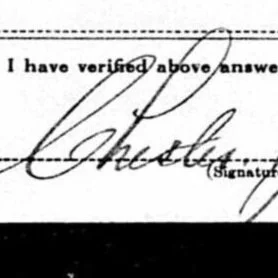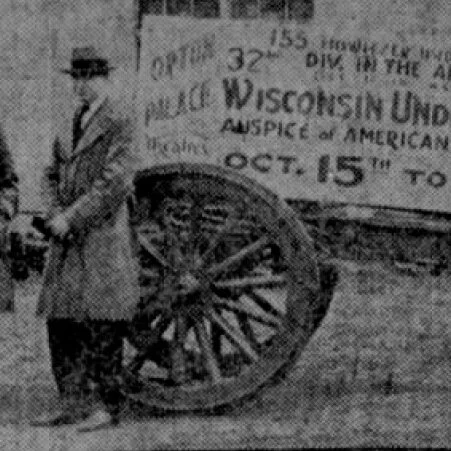Call of the Rockies (1931)
In 1931, after selling his share in the Monroe Theater; after growing a movie theater chain between Milwaukee and Janesville; after starting his own sound/image projection equipment firm (but not patenting anything!); Leon Goetz ventured into the film distribution business. Leon bought the rights to a struggling Mormon film that was originally titled “The Exodus” and was directed by Raymond K. Johnston.
The Mormon Church in 1928 was on the offensive against what it saw as anti-Mormon propaganda coming out of Hollywood. To counter this, the church sought to invest in producing its own films. That May it set up the “Pioneer Film Corporation” in Salt Lake City and planned four films: “The Exodus”, which dealt with Mormon pioneers’ journey to Utah; “The Malemute Kid”; and two unnamed others. A Hollywood producer, George Edward Lewis, was hired and relocated to Utah; the grandsons of Brigham Young were signed on as consultants.
The firm was funded by a public call for investment in major Utah newspapers through mid-late 1928; though it seems that there was a major investor connected to Chicago too. In September 1929 a man named Max E. Miller brought suit against Pioneer Film for failure to pay interest. Miller claimed he was entitled to the film under terms of an indenture of trust from the company to a Chicago-based trustee named Joseph E. Bond. At the time of the suit “The Exodus” had been filmed and even premiered in Salt Lake City in February 1929, but no one was interested in buying rights to it as it stood. In July 1930, the assets of the Pioneer Film Company were auctioned outside the west front door of the Salt Lake City courthouse. Around this time Leon Goetz bought the rights to “The Exodus” along with a Chicago business partner, Albert Dezel. The men distributed the film through companies named “Road Show Pictures, Inc.” and “Syndicate Pictures Corp.”.
By January 1931, “The Exodus” had already undergone a number of name changes. “The Exodus” became “The Exodus of the New World”, then “West of the Rockies” and even “All Faces West” at one point. Leon (alone) registered his copyright under the title “Call of the Rockies” on January 9th, 1931 and the film was issued copyright number LP1876. Leon Goetz and “health film” entrepreneur/“sexologist” Albert Dezel were listed as producers, but Dezel wore a second hat as “general supervisor” too.
“All Faces West” newspaper advertisement courtesy of IMDb.
On the face of things, the film was not a bad investment. It had an element of star-power: Marie Prevost lead as “Arleta Vance”. However, Prevost’s career was declining at the time— an odd development as her connections in the industry had strengthened. She’d just had an affair with Howard Hughes (who also became close to the Mormon church during his declining years in Las Vegas) and Cecil B. DeMille was taking an active interest in casting her in one of his films when she chose to participate in “The Exodus”. Sadly, Prevost would die of alcoholism in 1937.
Marie Prevost in 1918 while she was working for the Keystone Film Company as one of Mack Sennett’s ‘Bathing Beauties’. Prior to this, she’d been a secretary for Keystone’s legal team.
The problem Dezel and Goetz faced was that few people wanted to watch a Mormon film. The answer was editing, according to the American Film Institute’s catalog entry for “Call of the Rockies”:
“However, notices for the first verified showings of the film in spring 1931 listed the title as Call of the Rockies and made no mention of a Mormon theme. It has not been determined at what point, or why, the subject matter was changed for the 1931 release or when the new footage was added.”
Who did the editing is not known, but both Goetz and Dezel had contacts on Chicago’s “Poverty Row”— Wabash Avenue— who would have been up to the task. It’s not clear that the film was ever profitable, but Leon’s connection with Albert Dezel and the US military almost certainly was and will be the topic of a future post.








